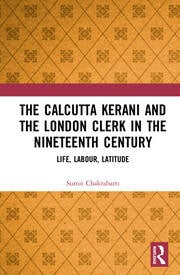A ‘Bridge’ With a ‘Voice’: Towards a Consensual Helmsman for an Inclusive Global Village
Posted on : March 6, 2023Author : Ratnadeep Maitra

A deeply disruptive global order tainted by burgeoning fissures beckons New Delhi as it assumes the much-touted G20 presidency. The extant geopolitical paradigm has witnessed four intertwined crisis points to coalesce together – the logic of de-globalization hitting its crescendo with a concomitant inward-looking protectionism, a comatose global political economy, a precarious ecological quagmire, and a protracted warfare over territoriality, couched in the language of revanchism. Thereby, locating New Delhi’s larger diplomatic project would entail a revisit of its prescient call for an “inclusive, ambitious, decisive and action-oriented” leadership to herald a healing touch of pacifism and amity to the world order.
It has been astutely articulated by Narendra Modi about the crisis of global governability despite the post-World War consensus, with its avowed designs of balancing inter-state interests and fleshing out realms of cooperation, getting gravely derailed. Henceforth, a timely reminder of Gandhian precepts and Buddhist injunctions as alternative analytical tools to discern and dissect the geopolitical landscape, marks a long-due Asian civilizational arrival. Nevertheless, a rigorous of scrutiny of “issues that one cannot solve together” with “those (one) can” at G20, becomes imperative at this point.
As the repository of 85% of global GDP and 75% of global financial exchange, coupled with being the custodian of two-thirds of the world population, the ideational lynchpin of the G20 has always been that of collective pursuit of transnational aspirations and an egalitarian coalition between the developed and the emerging economies. Its seamless transition from mere macroeconomic targets to addressing the troika of calamity, conflict and commerce, has formalized its departure from being a perfunctory talking shop.
The central thread operating across the G20 presidency of Delhi has been the all-encompassing vision of Vasudhaiva Kutumbakam – a quest to assuage the fragmented geo-body through the common planks of peace and human security. In that regard, the predominant priorities, namely – green development, climate commerce, a robust, brisk yet inclusivist growth mechanism, transformational technological capital, a multilateral architecture for women-centric development – have already been flagged. Business honchos have optimistically prognosticated how the current presidency would bring about geoeconomic stability and “macroeconomic coordination”, in the wake of tectonic shifts in geo-alignments.
In a similar vein, the Indian presidency is expected to address transnational financing needs, through concerted vigilance and ratification of pro-people monetary policies, financial redistribution devices and structural reforms at institutional level. Over and above, inter-governmental organizations as the United Nations have pinned their hopes on this presidency to revamp global debt-restructuring and debt-relief, coupled with the crystallization of development banks to give a financial ballast to middle-income countries.
It is truism to suggest that India has been a strong activist-state pertaining to the evolving geopolitics around climate with a profound experience and unswerving commitment to the Paris Climate goals. Its unique position must be harnessed to tap the potential of other states in building renewable repositories for electric capacity. Moreover, Delhi must transcend the parochial binary constructions – economic growth juxtaposed against climate activism. Similarly, the broader realm of disaster mitigation has received a fillip, as Delhi has institutionalized the Coalition for Disaster Resilient Infrastructure (CDRI) for regulating the conventions for developmental endeavours. Over and above, a much-needed conversation around digital governance has been initiated through an Indian clarion call for “Data for Development” premised on democratisation of digital access. The resounding success of Aadhar and Jan Dhan closer home, is a testament to an Indian model of digital inclusivity with ramifications for a global fintech revolution.
Needless to aver, with a bolstered public finance, healthy export graph, and an unflinching climate leadership, Delhi is surely cruising along a geopolitical and geoeconomic sweet-spot, capable of ushering in a rules-based order.
Despite the persistent Indian endeavours of showcasing itself as a consensus builder, glossing over the Ukraine imbroglio, such a middle-path approach has failed to generate the expected expediency. The incapacity of the two critical G20 ministerial meetings to devise a unanimous statement on the military crisis, owing to a diplomatic opprobrium on the part of Beijing and Moscow, compelled a mere reiteration of the Chairman’s Summary and issuance of an Outcome Document. The discrepancy in the Russian standpoint vis-à-vis the Bali consensus, must be situated within the renewed military blitzkrieg directed by Moscow, in contrast to their momentary military reverses in the immediate past. As a logical outcome, the space for diplomatic manoeuvring for Delhi has contracted considerably, with Putin’s scorched earth policy to fracture the West, pitted against Biden’s proclamation for Ukrainian assistance even in the distant future. To compound the adversity, Italian premier Meloni’s snide legitimation of European problems as world problems, with hard power as the new currency of control is reflective of the European uneasiness about the Indian ambivalence on the crisis.
As so, it is an opportune moment for the mandarins at Delhi to trailblaze a language of consensus on Ukraine, synthesizing the Russian grievances with the Euro-American concerns, through an energetic and participative multi-alignment schema. Donning the hat of a global statesman, it must eschew kicking the can down the road, and supplanting it with constructive engagement via creative formulas with a keen ear to the geopolitical realities. While an immediate cessation of the warfare may appear utopic, Delhi must prepare to play a Morgenthau-esque “balancer” of power, to water down the fault-lines.
A prolonged geopolitical ignorance of the developing world, has manifested in the form of a great power-game around the Global South. With the gradual resurgence of New Delhi as an influential actor in the region, it must utilize its presidency as the conduit to amplify the voice of the developing world. The Russia-Ukraine crisis may be adduced to underscore how the disproportionate fallouts emanating from the actions of the “core” – food paucity, energy crisis and rising commodity prices – accost the “periphery. To emerge as a “champion” of the Global South, New Delhi must attest greater thrust to vaccine accessibility, healthcare equity, climate justice and even transnational terrorism. Treading on the Nehruvian footsteps of Non-Aligned Movement and Third World Solidarity, got further vindicated by the virtual January summit, wherein Delhi hosted close to 120 countries from the Global South, showcasing their cumulative stake in the Indian presidency.
Such efforts must be supplemented by keeping the Global North in confidence without alienating it. India’s strategic position of camaraderie with the developed world and as a beacon of hope and trust for the developing world, would facilitate it to act as a bridge between both, especially on contentious matters of multilateral memberships, climate concerns and digital chasms. It is only through assuming the twin roles of a radical propagator and a pragmatic synthesizer, can Delhi expect to cement its credentials as a “South Western power”. Finally, the deep-seated heterogeneities and material-militaristic asymmetries even within the developing world must be duly acknowledged, through region-specific designs.
Unpacking the G20 emblem of a blooming lotus with seven petals seeks to vindicate the peaceful coexistence of a multitude of life forms, with the numerical “seven” epitomizing the seven continents of earth. The “seven” might also be the signifier of the seven musical notes in remarkable harmony – a virtue, conspicuous by its absence in the current global politics. It is such a familial ethos of holism, which requires infusion in a potently polarized world, where “even having everybody in the room becomes challenging”. Therein resides the real challenge for New Delhi – to step up as the hallmark of compassion for “One Earth” and towards “One Future”.
Ratnadeep Maitra
Ratnadeep Maitra is a student of political science, having completed his graduation from Presidency College, Kolkata. He is currently pursuing his Master’s from University of Hyderabad. He was an intern at Asia in Global Affairs and has regularly contributed to their monthly and guest columns.
Bibliography
- Mohan, C Raja (2022). “Championing a Global South”. In The Indian Express. (6th December, 2022).
(https://indianexpress.com/article/opinion/columns/india-g20-presidency-c-raja-mohan-opinion-8307870/)
- Zeeshan, Mohamed (2023). “For India, There’s No Escaping Ukraine at the G20”. In The Diplomat. (3rd March, 2023).
(https://thediplomat.com/2023/03/for-india-theres-no-escaping-ukraine-at-the-g20/)
- Baru, Sanjaya (2023). “India can still be a bridge for the Global South”. In Foreign Policy. (2nd March, 2023).
(https://foreignpolicy.com/2023/03/02/india-g20-modi-global-south-ukraine-climate-economy/)
- Malhotra, Shairee (2023). “India’s G20 Presidency: Bridging the North-South divide”. In Observer Research Foundation. (21st February, 2023).
(https://www.orfonline.org/expert-speak/indias-g20-presidency-bridging-the-north-south-divide/)
- Kakoti, Ananya and Gunwant Singh (2023). “India’s G20 Presidency- A Potential Watershed Moment?”. In Hindustan Times. (28th January, 2023).
- Thakkar, Chirayu and Deepanshu Agarwal (2022). “India’s G20 presidency providing Substance to Summitry”. In Stimson Center. (9th December, 2022).
(https://www.stimson.org/2022/indias-g20-presidency-providing-substance-to-summitry/)
- Nagial, Col. Balwant Singh (2023). “G20 Presidency: An opportunity for India to showcase leadership”. In The Times of India. (7th January, 2023).
- Raghavan, TCA (2022). “G20 Presidency puts Modi’s India in a global spotlight”. In The Print. (3rd December, 2022).
- Husain, Mehdi (2023). “Challenges to India’s G20 Presidency and Effectiveness of G20 Framework”. In Hindustan Times. (27th January, 2023).
- “G20 meet shows crisis in multilateralism”. In The Indian Express. (4th March, 2023).





Leave a Reply